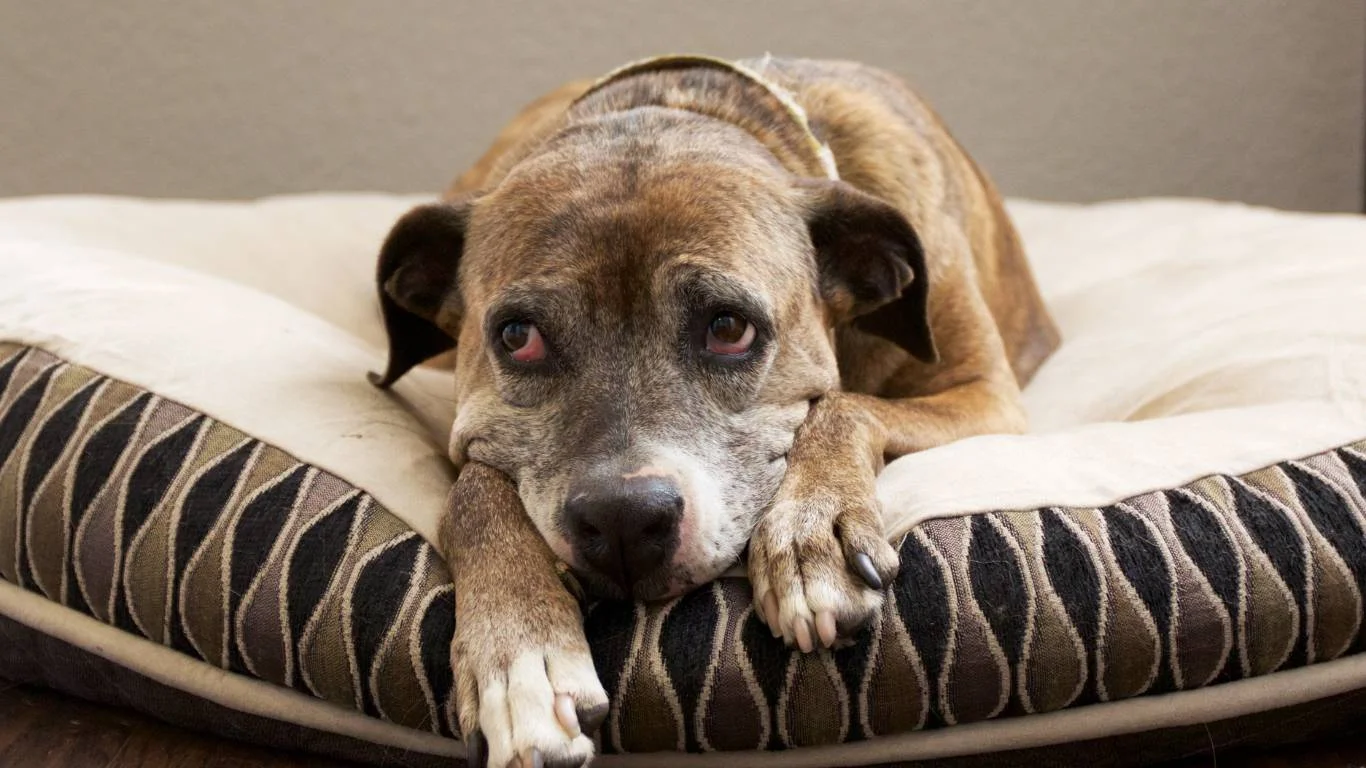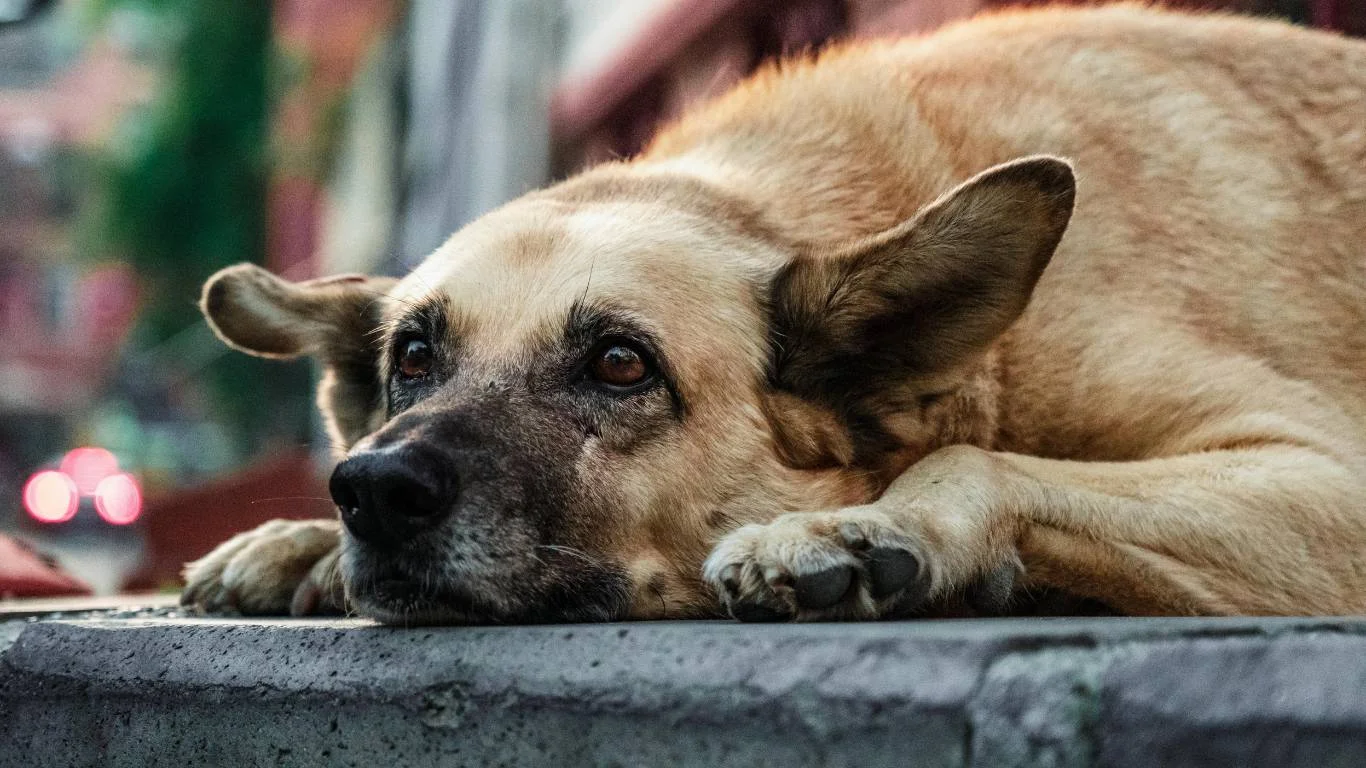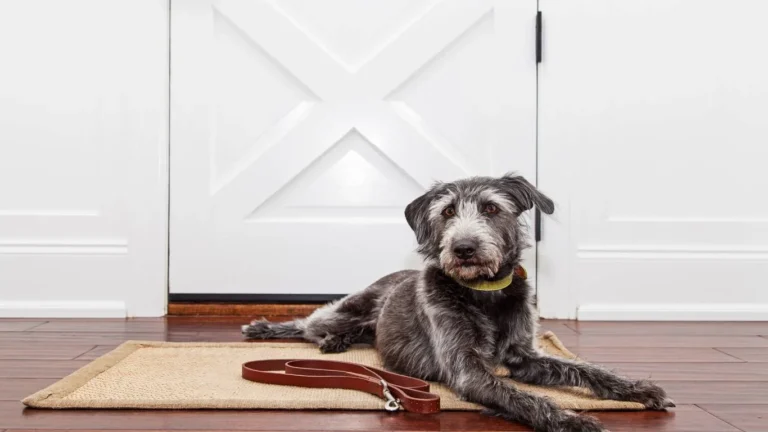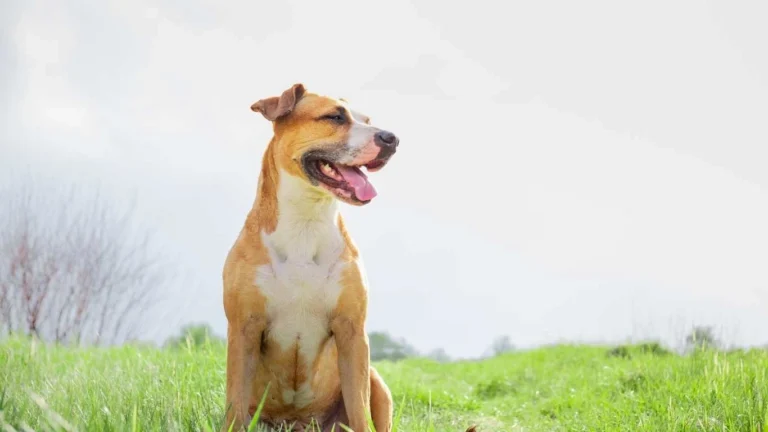What Causes Sudden Weight Gain in Dogs? Signs, Causes, and Solutions
Ever noticed your dog suddenly puffing up like a fluffy balloon, and you’re sitting there scratching your head thinking, “What causes sudden weight gain in dogs?” You’re not alone. I remember when I was working a shift as a vet assistant and a sweet Golden Retriever named Daisy waddled into the clinic. Her owner swore nothing had changed—same food, same walk schedule—but Daisy had packed on almost ten pounds in just a few weeks. Trust me, these weight surprises are more common than you might think, and the reasons behind them? Well, they’re a mix of sneaky and serious.
Common Medical Causes of Sudden Weight Gain in Dogs

1. Hypothyroidism: The Metabolism Slowdown
This one pops up a lot more than folks realize, especially in middle-aged dogs. Hypothyroidism basically means your pup’s thyroid isn’t making enough hormones to keep their metabolism humming. I remember a sweet Beagle named Tucker who came in sluggish, with dry skin, and yep—sudden weight gain. Bloodwork confirmed it. Once he started thyroid meds, it was like watching him come back to life.
2. Cushing’s Disease: Too Much Cortisol
If your dog seems rounder, drinks a ton of water, and has a pot-bellied appearance, you might be dealing with Cushing’s disease. It’s caused by an overproduction of cortisol and is common in older dogs. It creeps up, but that sudden weight gain is often the red flag. A vet visit and some diagnostics (usually a blood test or ultrasound) can help confirm it.
3. Fluid Retention: Not Always About Fat
Here’s a twist—sometimes what looks like weight gain isn’t fat at all. Conditions like heart disease or even tumors can cause fluid buildup in the abdomen, called ascites. I once helped assist on a case with a Labrador that gained nearly 8 pounds in two weeks—turned out it was fluid from a liver issue, not weight gain in the traditional sense.
Diet and Lifestyle: The Sneaky Contributors

1. Overfeeding and Treat Overload
I get it—we all want to spoil our dogs. But extra treats here and there, or filling up that food bowl “just in case,” adds up fast. I always tell pet parents at the clinic: “Would you eat a donut every time someone smiled at you? That’s what your dog thinks is happening.” Measuring meals and tracking treats really can make a huge difference.
2. Poor Quality Food
Not all dog food is created equal. Some are loaded with fillers like corn and by-products that bulk up your dog without providing real nutrition. I always steer clients toward foods with meat as the first ingredient and as few mystery additives as possible. And yes, sometimes even “grain-free” isn’t always better—it’s all about balance.
3. Lack of Exercise
Dogs are just like us—too much couch time and not enough zoomies can lead to weight gain. Even small breeds need regular activity. I’ve met so many pups who got less active as they aged, and their humans didn’t adjust their food or schedule. It’s a slow build-up until bam—chubby pup problems.
Medications and Hormonal Changes

1. Steroids and Anti-Inflammatories
Prednisone and other steroids can be life-saving, but they come with side effects—one of the big ones being weight gain. I’ve seen dogs on long-term steroid therapy gain weight despite owners doing everything else right. Appetite increases, metabolism slows—it’s a tough combo.
2. Spaying and Neutering
This is a tricky one. While spaying and neutering don’t cause weight gain directly, they do reduce hormone levels, which can slightly lower your dog’s metabolism. After surgery, it’s smart to adjust feeding portions and be extra mindful about activity.
3. Meds for Seizures or Anxiety
Certain anti-seizure drugs like phenobarbital or medications for anxiety may have side effects that affect metabolism or appetite. If your pup starts packing on pounds after starting a new med, bring it up with your vet—it might be time to tweak the dose or explore alternatives.
Age and Breed: Often-Overlooked Factors

1. Aging Slows Things Down
Just like us, dogs slow down with age. Their metabolism naturally declines, activity decreases, and suddenly those extra calories don’t burn off like they used to. I’ve had plenty of clients come in frustrated, saying, “But she’s eating the same!” And yes, that’s true—but her body’s changed. Especially for senior dogs, a gentle adjustment in diet and a vet-recommended exercise plan can go a long way.
2. Certain Breeds Are Prone to Weight Gain
It might not be fair, but some breeds just pack on pounds faster. Think Labrador Retrievers, Beagles, Dachshunds, and Bulldogs. It’s not just about appetite—these breeds often have different energy needs and hormone balances. I remember this adorable Bulldog named Max who would gain weight just looking at a biscuit. For dogs like him, weight management has to be more proactive.
3. Mix Breeds? It Still Matters
Even mixed breeds can inherit these tendencies. If your dog’s DNA has a heavier breed influence, you might notice easier weight gain over time. Doing a DNA test can help you understand your pup’s health predispositions—not just for fun, but to tailor their care better.
Behavioral Triggers Behind Sudden Weight Gain

1. Boredom and Emotional Eating
Yup, dogs can eat out of boredom too. If their daily routine is lacking mental stimulation or they’re left alone a lot, some pups start to obsess over food. I had a client whose Boxer started gaining weight fast after the family started working long hours. Turned out, the poor guy was stress-eating kibble like it was popcorn.
2. Begging Behavior and Human Reinforcement
Let’s be honest—dogs are smart, and we’re suckers. If they learn that whining or giving you “the eyes” gets them snacks, they’ll keep at it. I always remind dog parents: Every treat is a transaction. Make them earn it through training or enrichment activities. That way, they’re not just mindlessly eating, and it keeps their brain working, too.
3. Changes in Household Dynamics
New baby, recent move, or even a new pet? Any change in the home can stress a dog out—and sometimes, they cope by eating more or moving less. One client of mine had just gone through a divorce, and her terrier stopped playing altogether. The weight crept on, but once they both got into a new routine, things started to level out.
When to Worry and See a Vet

1. Sudden Weight Gain with Other Symptoms
If you notice your dog’s weight climbing and they’re also showing signs like lethargy, hair loss, increased thirst, or panting, that’s your cue to call your vet. Those extra pounds could be a symptom of something deeper going on. We always recommend blood panels and physical exams for sudden changes—catching things early makes a world of difference.
2. Regular Weigh-Ins and Monitoring
You don’t have to be obsessive, but keeping an eye on your dog’s weight can save you from surprises. I usually tell pet parents to weigh their dogs once a month, especially if they’re older or have a condition. Even a 2-3 pound gain can be significant depending on the breed.
3. Keep a Health Journal
Here’s a little pro tip from my vet assistant days: keep a simple journal for your dog. Jot down food changes, new meds, activity levels, and behavior shifts. When something like sudden weight gain pops up, you’ll have a paper trail to help your vet pinpoint the root cause a lot faster.
Practical Tips for Managing Canine Weight Gain
1. Portion Control and Meal Timing
Using a measuring cup (yes, really!) makes a massive difference. Free-feeding might seem convenient, but it makes weight control a nightmare. Stick to regular mealtimes and track how much your dog eats daily. Apps can help, but a plain old notepad works just fine too.
2. Switch to Weight-Management Formulas
There are great dog foods out there designed for weight control. Look for options with high protein, low fat, and added fiber. I’ve had good experiences recommending formulas from brands like Hill’s, Royal Canin, and Wellness Core. Just make sure the transition is gradual—no sudden food swaps, or you’ll have a whole different mess to clean up.
3. Sneaky Exercise Ideas
Not every dog loves a brisk walk, especially seniors or brachycephalic breeds (hello, Frenchies). Try puzzle toys, hide-and-seek games, or even indoor fetch. One of my clients got their Chihuahua to shed weight by tossing kibble piece by piece down the hallway at dinnertime. It’s not about intensity—it’s about consistency and fun.
Long-Term Strategies for Preventing Sudden Weight Gain in Dogs

1. Establish a Consistent Routine
One thing I’ve learned from years in the vet clinic is that dogs thrive on routine. Feeding times, walks, play sessions—keeping these consistent helps regulate metabolism and behavior. When everything’s all over the place, dogs can become anxious, which sometimes leads to overeating or less activity. Even small changes, like a 10-minute daily walk at the same time, can make a huge difference.
2. Work Closely With Your Veterinarian
If your dog has gained weight suddenly or seems prone to it, regular vet check-ups are crucial. Your vet can recommend blood tests, nutritional plans, or even refer you to a veterinary nutritionist if needed. In my experience, the best weight loss plans are tailored to the individual dog’s health history, breed, and lifestyle. Don’t be shy about asking questions or requesting a detailed evaluation.
3. Use Technology to Your Advantage
Nowadays, there are apps, smart feeders, and even dog activity trackers that can help you monitor your pup’s calories and exercise. I remember a client who used an app to log meals and walks, and the progress was visible in just a few weeks. It’s like having a mini vet in your pocket, giving you reminders and motivation to keep your dog healthy.
When Sudden Weight Gain Signals a Deeper Problem

1. Underlying Diseases You Shouldn’t Ignore
While many causes of sudden weight gain are manageable, sometimes it’s a sign of a serious medical issue like diabetes, heart failure, or even tumors. In my time assisting vets, I’ve seen cases where what looked like “simple” weight gain turned out to be fluid retention from heart disease or liver problems. That’s why early vet intervention is key—don’t wait for more symptoms to pop up.
2. Recognizing When Weight Gain is a Symptom, Not the Cause
Sometimes, the weight gain is just the tip of the iceberg. If your dog suddenly becomes lethargic, starts coughing, has trouble breathing, or shows behavioral changes along with weight gain, those signs together point to an urgent need for professional care. I always urge pet parents: trust your gut, and get a vet involved sooner rather than later.
3. Emotional Support and Patience Are Vital
Managing sudden weight gain in dogs is not always a quick fix. It requires patience, consistency, and a whole lot of love. Remember, your dog doesn’t understand why their routine or food is changing—they just know you’re there to help. Celebrate small wins, and keep that bond strong. After all, weight management isn’t just about numbers—it’s about keeping your best friend happy and healthy for years to come.
References & Resources
- American Animal Hospital Association
- American Veterinary Medical Association
- World Small Animal Veterinary Association
- Tufts University Cummings School of Veterinary Medicine
Disclaimer
This article is intended for informational purposes only and is not a substitute for professional veterinary advice, diagnosis, or treatment. Always seek the guidance of your veterinarian or other qualified pet health provider with any questions you may have regarding your pet’s health or sudden weight changes. Never disregard professional advice or delay in seeking it because of something you have read here.






